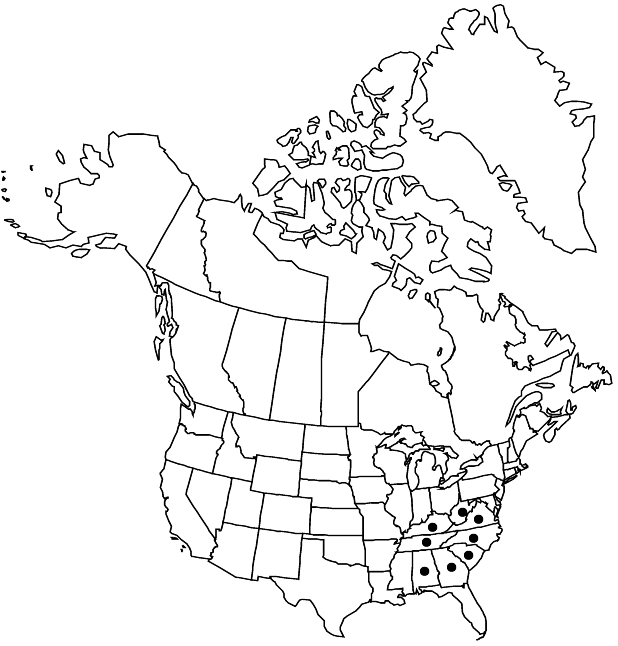Difference between revisions of "Boykinia aconitifolia"
J. Acad. Nat. Sci. Philadelphia 7: 113. 1834 ,.
FNA>Volume Importer |
FNA>Volume Importer |
Revision as of 23:01, 16 December 2019
Plants: rhizomes proliferating underground. Flowering stems 15–80 cm. Basal leaves: petiole 3–18(–31) cm; blade usually reniform, rarely orbiculate-cordate, 3–7-lobed to 1/2–3/4 its length, (2.5–)4–8(–12) × (3–)5–13(–15.5) cm, margins usually 2–3-times dentate, rarely crenate. Cauline leaves: stipules 1–8 mm, either expansions of petiole base, fringed with brown hairs, or foliaceous. Inflorescences ± pyramidal, 5–20(–30)-flowered per primary branch. Pedicels densely stipitate-glandular. Flowers: hypanthium campanulate to turbinate, free portion 0.7–1 mm, densely stipitate-glandular; sepals erect, lanceolate to narrowly lanceolate, 1–2(–2.5) mm, apex acute; petals spatulate to ovate, 3–6 × 1–3 mm, 2–3(–4) times as long as sepals, base tapered to claw, margins plane; nectary green; stamens 0.9–1.4 mm; ovary subinferior. Capsules ovoid, turbinate, or urceolate. Seeds usually black, tuberculate. 2n = 14.
Phenology: Flowering summer.
Habitat: Moist woodland, margins of lakes, ponds, and watercourses
Elevation: 300-1000 m
Distribution

Ala., Ga., Ky., N.C., S.C., Tenn., Va., W.Va.
Discussion
Boykinia aconitifolia from Alabama and Georgia with turbinate capsules and rounded-ovate leaf marginal teeth have been separated as B. turbinata from plants with the more usual urceolate capsules and leaf margins with ovate or triangular teeth. These characters, however, are not closely correlated and it seems better to recognize a single variable species. It is sometimes grown in gardens.
Rafinesque applied the name Therofon napelloides to this species, citing Nuttall’s Boykinia aconitifolia as a synonym. The former is therefore illegitimate.
Selected References
None.